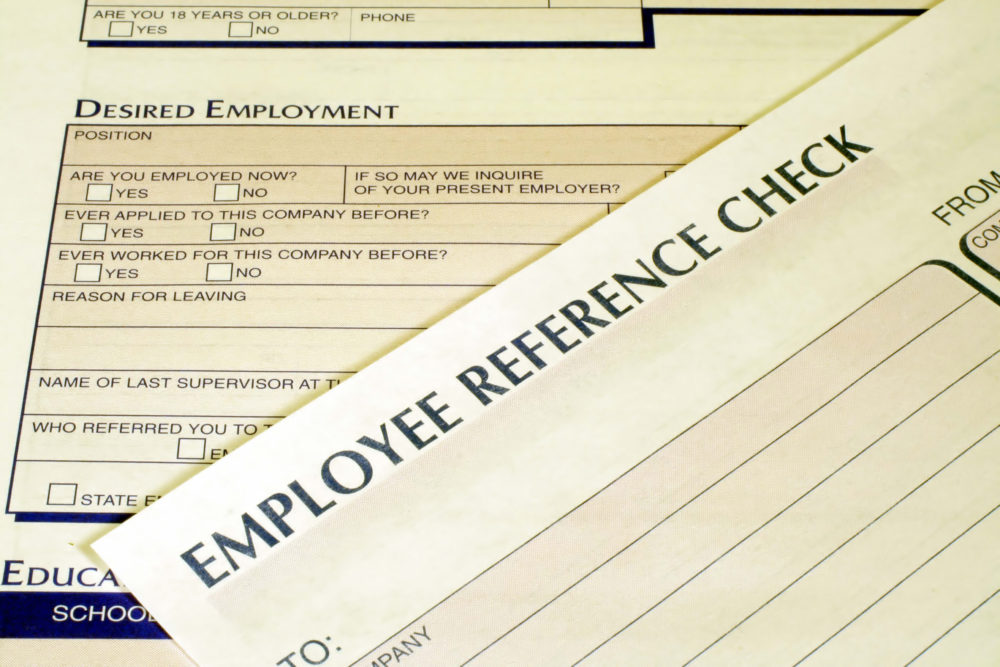Have you ever hired someone and wished later that you had taken up references? Have you ever fired someone for poor performance and wondered how they managed to get their next job without the new employer checking with you first? As the owner of a small business, I can answer ‘Yes’ to both questions and it has set me wondering why the role of the job reference has become so diminished in the hiring process.
One reason is that few people will provide a reference for fear of retribution. We all know that ex-employees may be able to challenge a reference if they think it is unfair or misleading. This has meant that the reference most ex-employers are willing to give is brief and bland and frequently reduced to an ex-employee’s job title and start and finish dates.
There can be other legal concerns. Poor performers regularly get offered a compromise agreement when they are fired from a company. This means that in return for an enhanced pay off and a pact of mutual silence about their misdemeanours, they agree not to sue their employer for wrongful dismissal. A carefully worded cover up reference is usually part of the package and the wording is worked out by opposing legal teams.
Many employers think it a waste of time asking for a reference because the information will be useless and the practice is dying out. Legal and other concerns have created a black hole into which the valuable information that one employer can give another has disappeared.
None of this is good news for small businesses. Fledgling teams at the early stages of business growth need top performers. Without quality reference information, employers are at the mercy of those job applicants who attempt to enhance their chances of obtaining a job offer by distorting their education, training and work history information. Moreover, weak performers with polished interview styles can fail in their new job and move potentially undetected from one organisation to another picking up sizeable pay-offs on their journey.
To get round the problems of obtaining a quality reference, here are some tips:
- Ask the chosen candidate(s) for the names of the people who supervised them most closely in at least their last two positions and ask them for permission to approach these people for a reference. (The reaction of the candidate to such a request is often interesting).
- If you have no other information, use LinkedIn or some other source to get the email addresses of the referees.
- Don’t ask the referees for an open-ended (blank sheet) reference. You stand a better chance of getting one if you send them a simple form to complete.
- Be sure to explain that what you are trying to decide is the fit of the candidate to the job you are offering: you are not asking if someone is good or bad and are not just looking for ‘dirt’ or a confirmation of what you already know.
- Structure your enquiry around the competencies required in the job you propose to offer the applicant and send the referee’s definitions of the competencies. Structured references have been shown to be as good a predictor a of job performance as structured interviews.
- Deciding on the key competencies for the position you are filling together is not as daunting as it sounds. You can find comprehensive job competency lists with definitions on the web (for example, here).
- Avoid the temptation to say that your candidate needs to be competent in everything. Choose the six most crucial competencies for that particular job. Keeping the number down is a big advantage when you are asking a busy or reluctant past employer for the information.
- Your form should have a six point numerical scale (an even number avoids middle choices) with the two extreme points labelled, ‘poor fit’ and ‘excellent fit’.
- Personalise the request, explain how invested you are in getting quality information and how helpful the information will be. Offer to take the responses by phone. You may find referees are more forthcoming when the process feels like a conversation.
- If you taking the reference by phone, listen to the specific word choices and the tone and enthusiasm with which the reference describes the candidate. Shifts in tone, long pauses, or hesitations might indicate that you’ve hit a sensitive or troublesome subject. Also keep an ear out for overly enthusiastic references without sufficient depth of examples to back up the praise.
Verifying critical employment information can significantly cut down on selection errors. Never allow yourself to want a candidate so much that nothing is going to put you off with the result that you neglect to carry out a proper reference process.





